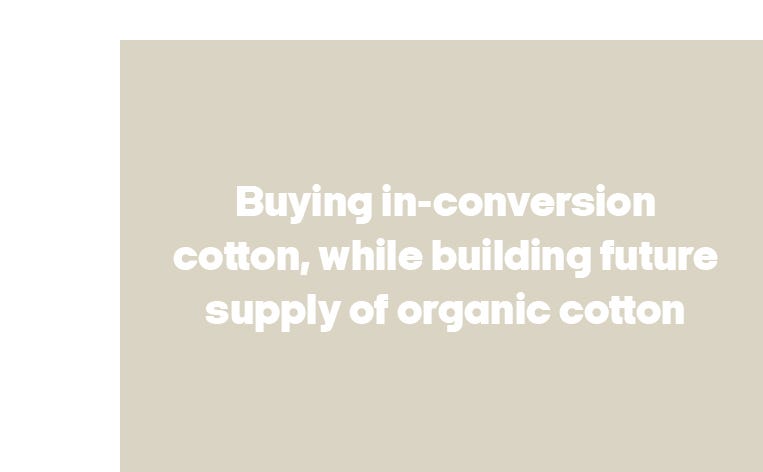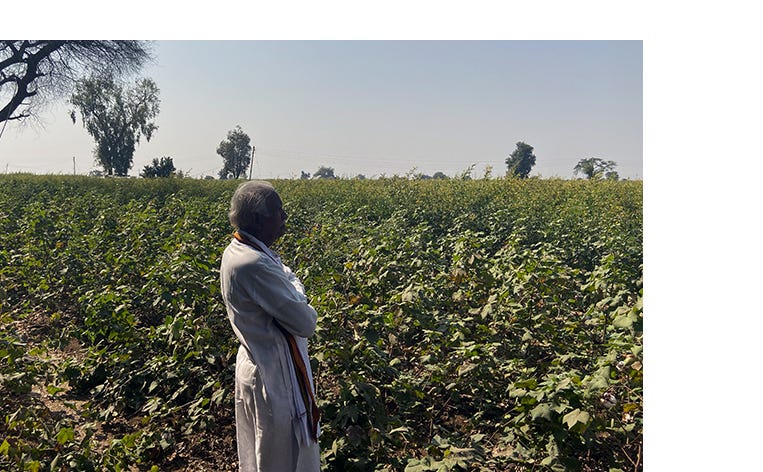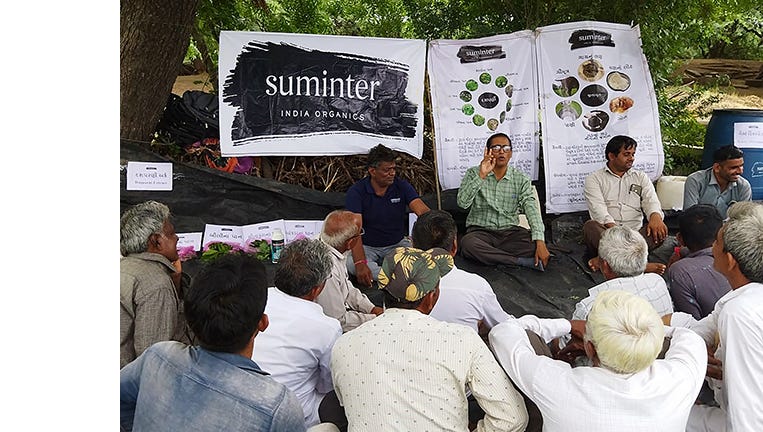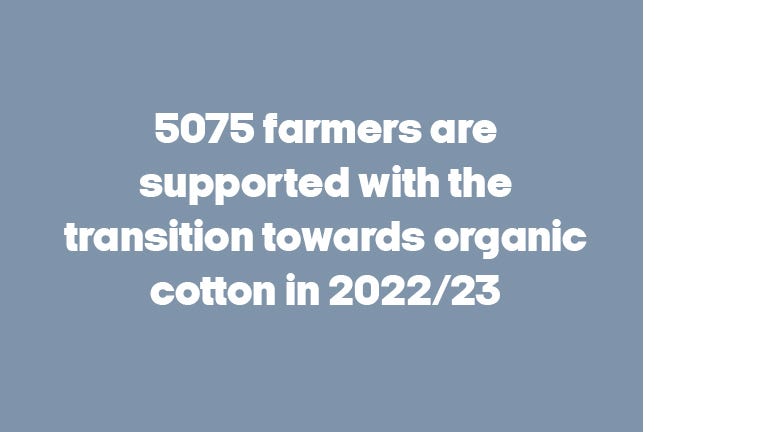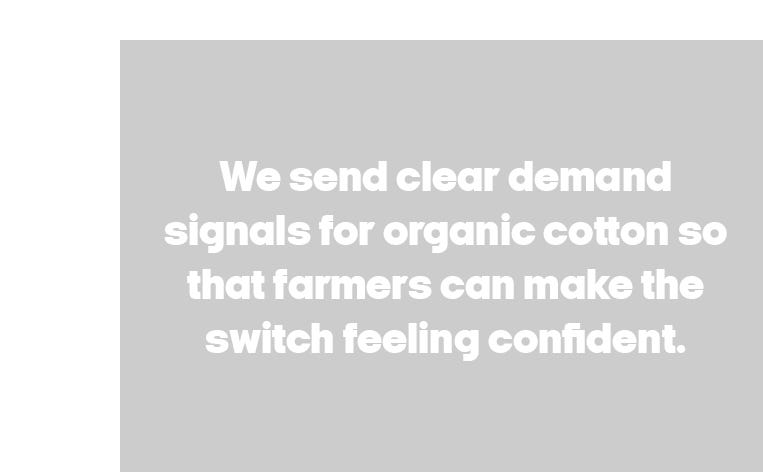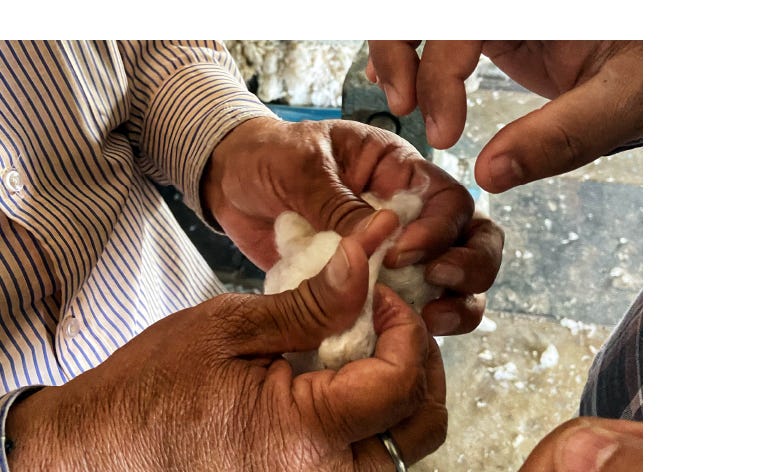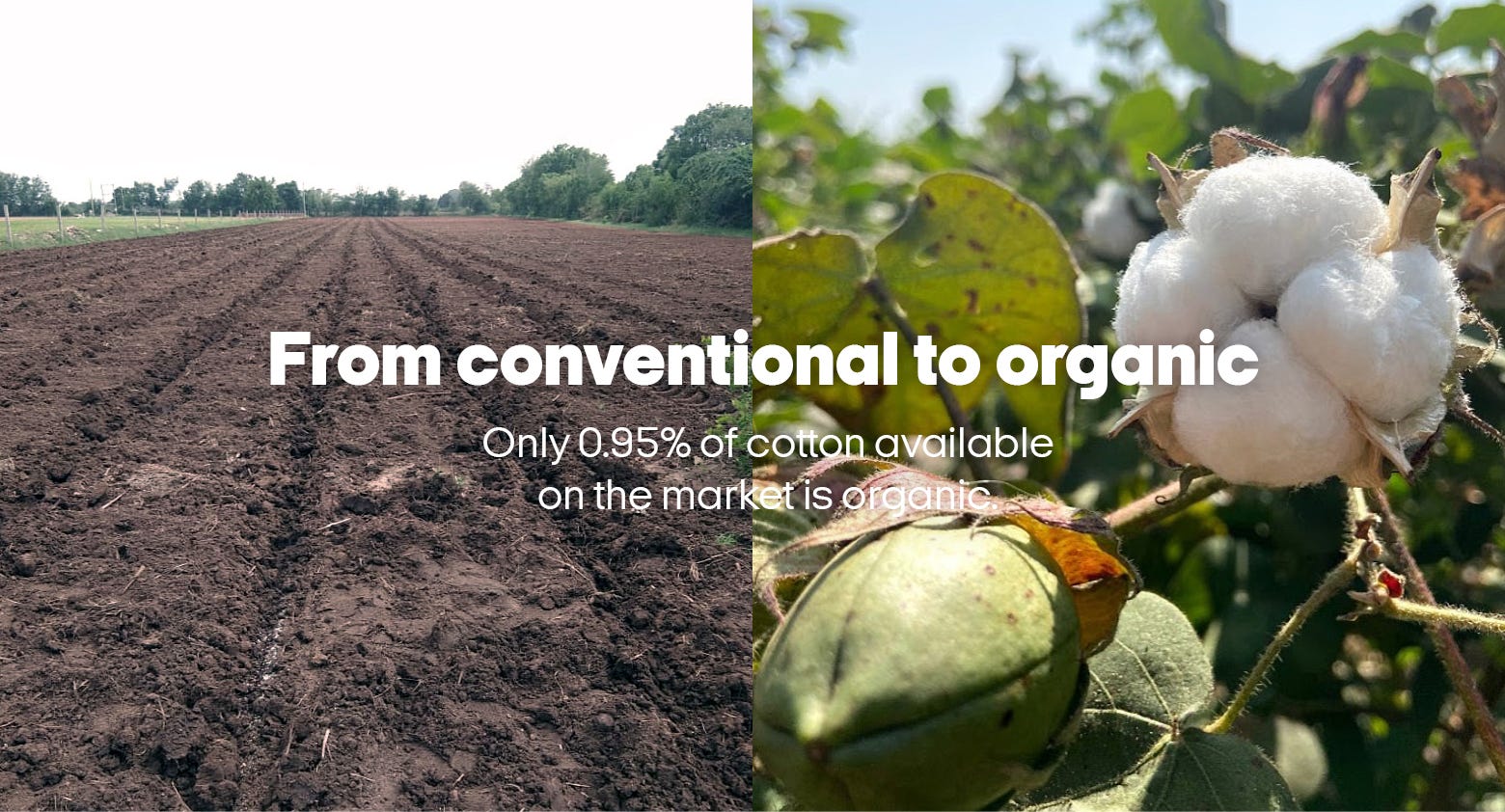
Only 3,2% of cotton available on the market is organic, sourcing it at scale is therefore not easy. Cotton is our most used material, and we want to source it in better ways - free from pesticides, artificial fertilizer, and genetic modification. We want to source cotton which has a positive effect on soil health and biodiversity. All this offers organic cotton and for this reason we want to source 50% of our cotton from organic cotton by 2025. With a leading role in a project called direct-to-farm through BESTSELLER, we help to grow a supply of organic cotton which also gives us a traceability right down to the farmer who have grown the cotton.

To increase the organic cotton availability, it is important to source in-conversion cotton. To grow organic crop, the land must go through a conversion period. This period starts with implementing organic production practices and organic management with focus on building soil health and fertility until the acceptance of crops as organic. The conversion period for a farmer to get the organic certification takes an average of three years as the soil needs to recover from pesticides and synthetic fertilizers commonly used in conventional cotton farming. During this time harvested cotton is called in-conversion cotton.
Farmers converting their farm under strict regulations and starting to grow cotton according to the organic farming standards, will experience a drop in their yield. This is because no quick-fix synthetic fertilizers can be used, while the naturally healthy soils that feed the crops have not yet fully developed. On top for organic farming a lot of knowledge and time to adapt is needed.
Unfortunately, during the time farmers implementing practices required to achieve organic certification and being audited annually by certification bodies, they are not paid the “organic premium” for in-conversion cotton. Unless farmers are supported, most of them cannot survive this conversion period of lost earnings and would quit the conversion to organic cotton. Without farmers motivated to enter this conversion, we won’t have supplies for organic cotton secured in future.
That is why it is essential for us to support and encourage farmers to the transition to organic cotton. Therefore, we support farmers to change their cotton production and to get their organic cotton certification. Through the direct-to-farm project will we focus on sourcing increased in-conversion cotton through our partnerships with OCA. By sending clear demand signals the farmers can make the switch feeling confident there will be a market for it.
